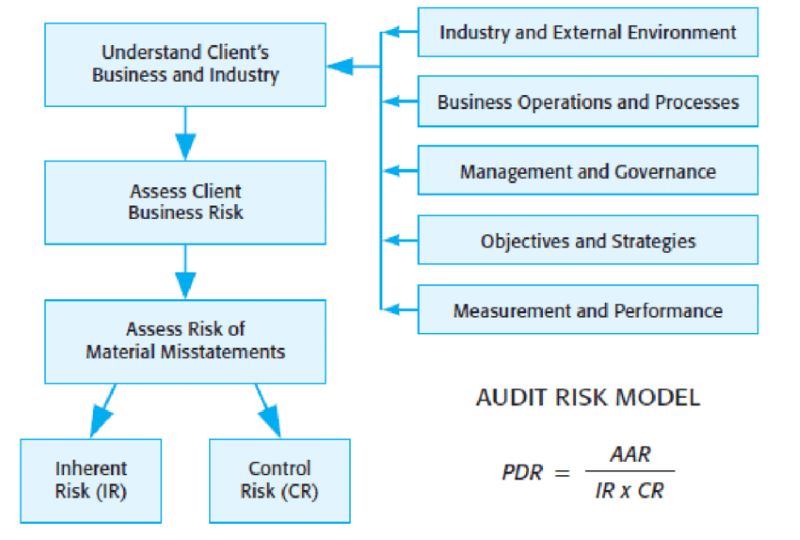Comparing services offered by audit firms isn’t just about tallying checkmarks in a list. It’s a deep dive into how each firm brings its own chess pieces to a board that’s forever evolving. With each move, the stakes rise. Here, I’ll strip away the glossy brochures and pinstripe suits to reveal the real brawl in the world of auditing. Clients’ needs are as varied as the services on offer; from the giants of the industry to the boutique firms, the rivalry is fierce. Buckle up as I dissect and contrast the methodologies that set apart these contenders, and answer the burning question: Who offers knockout strategies that can transform your numbers into narratives of success?
The Competitive Landscape of Audit Services
Comparing Big Four and Small Firm Audit Methodologies
You might wonder, “How do Big Four firms and smaller firms differ in auditing?” Big Four firms use tested methods that work worldwide. Smaller firms tailor their methods more to each client. Both aim to dig deep into financial records but approach it differently. Big Four firms have armies of auditors following strict paths. Small firms might use closer, more personal audits to get the job done.
Specialized Services: Financial, Internal, and External Audit Breakdown
So what’s the deal with different audit types? A financial audit checks if money reports are true. An internal audit looks at how a company runs inside. An external audit does what an internal one does but comes from outside the company. Financial audits are about “Are these numbers right?” Internal audits are “Are we doing the best we can?” External audits are fresh eyes saying, “They’re not just saying this; it’s true.”
Each audit type serves a purpose. Financial audits assure people that financial statements are fair. Internal audits help companies find ways to get better at what they do. They can improve stuff like risk management and control. External audits give confidence to everyone else, like investors, that the company is on the up and up.
Now, let’s talk about those auditors. Guess what? Their skills vary a lot. You’ve got auditors who know taxes like the back of their hand, which is a big bonus. They look for ways to save clients money while playing by the rules. Then there are auditors who are like detectives in suits. They dig into the books hunting for fraud. And let’s not forget those who advise on how to run things smoother — business consulting is their game.
From risk management solutions to keeping an eye on the environment, auditors have a broad game. IT and cybersecurity keep data safe. Everything gets checked, from green practices to firewalls. And all these come together in what we call assurance services. They tell the story of a company, inside and out. Firms spread out their offers to cover it all. But no two firms will give you the exact same plate.
Alright, so what’s the bottom line in audit quality comparison? It’s not just about the biggest name on the door. It’s about quality, care, and the perfect fit of services. Big or small, every audit firm brings something to the table. They’ve got different spices, but they all cook up reliability and trust in the end. Now, that’s food for thought in the audit firm showdown.
Beyond Basic Auditing: Value-Added Services Unveiled
From Tax Advisory to Business Consulting: A Diverse Suite
When we talk about audit firms, we often think of number crunching. But let’s dig into what they really do. Audit firms check how a business is doing. They make sure the money details are right. Just like a doctor checks your health, auditors check a company’s financial health. Now, they do a lot more than that.
Tax advisory services are a big deal. Auditors help companies figure out their taxes. They help save money and stay out of trouble with tax laws. They are like guides in the jungle of tax rules. Then there’s business consulting by auditors. It’s all about giving advice. Firms ask auditors for help to do better in business.
Financial audit offerings are just one part. Auditors look at the money coming in and going out to make sure everything adds up. They work like detectives to find any errors.
What about internal vs external audit services? Well, they’re like two sides of a coin. Internal auditors are part of the company. They help keep things smooth and check for risks. External auditors come from outside the firm. They give an unbiased look at the financial reports.
Big Four audit services are known for doing all this on a huge scale. They have lots of resources and deal with big companies. But don’t forget the smaller firms. They also offer great services and can be more personal in their approach.
Risk Management and Forensic Investigation: Enhancing Client Security
Now, let’s get into something a bit more interesting – risk management solutions and forensic audits. This is where auditors act like superheroes. They defend against bad stuff like fraud and help plan for the unknown.
Risk management is all about being safe and prepared. Auditors come up with plans to stop big problems before they start. They check for things that could go wrong and help fix them.
Forensic audit and investigation is like being a financial detective. Auditors go deeper to solve mysteries like theft or corruption. It’s serious business and super important to keep things honest.
Compliance audits make sure companies follow the rules. Think of them as the rulebook fans. They check to see if companies do what they’re supposed to, following all the law stuff.
Finally, let’s not skip over cybersecurity assessments from auditors. They’re the digital guards. They test computer systems to keep hackers out and to protect all the important info inside.
So, there you have it. Auditors offer so much more than most people think. From tax advice to fighting crime in finance, they do it all. And they play a big part in helping businesses grow safely.
Assurance and Compliance: Navigating Through Complexity
IT Audit Services and Cybersecurity: Protecting Digital Assets
Imagine a world where our digital belongings, like our money and secrets, are out in the open, up for grabs. Not on my watch! As your personal guide in the audit firm showdown, let’s talk protection. IT audit services and cybersecurity from auditors are like a digital bodyguard for your business’s secret sauce – the data. They make sure no one sneaks a peek or takes a byte.
Working at the very core, IT auditors check your tech defenses. They see if your walls are strong enough to keep out the bad guys. And with attacks becoming super smart, regular check-ups are a must, not just a maybe. These audits spot weak links, prevent slips, and keep your digital gold safe. Ever heard of a firewall? It’s like a castle moat but for computers. IT auditors make sure it’s wide and deep enough to stop invaders in their tracks.
When auditors dive into cybersecurity, they’re not just looking for padlocks and alarms. They hunt for sneaky bugs and clever cons that could cost you big time. Think of them like tech detectives with mind-blowing gadgets, sniffing out potential threats.
Remember, when it’s your name on the line, you don’t want just anyone checking your cyber locks. You need someone who knows their stuff. Firms specializing in IT audit services use their nerd power to keep businesses like yours one step ahead of the cyber bad guys.
Performance Audits and Environmental Audits: Meeting Modern Demands
Now let’s shift gears to performance and environmental audits. These aren’t about counting cash or stopping hackers. They’re more like a health check for your company’s goals and the planet’s well-being.
First up, performance audits. What’s that, you ask? Think of a race car. You want it fast and reliable, but how do you make sure it’s up to snuff? That’s where performance audits come in. They put your business through the paces, checking if it’s racing towards goals or just spinning its wheels. These audits give it to you straight – where you’re acing it and where there’s room to speed up.
Moving over to environmental audits, it’s all about going green. These days, it’s cool to care about our world. People love companies that are friends with the Earth. Environmental audit services make sure you’re not just talking the green talk but walking the walk, too. They check if your company plays nice with nature, follows green rules, and helps, not hurts, our home planet.
In this ring of the audit firm rivalry, we see who talks big and who delivers. With so much on the line, from tech treasures to our planet’s future, knowing your auditor’s might is key to winning the audit fight. The best firms don’t just count your money; they help you be a planet-saving, goal-crushing superstar. That’s the real score in the serious world of audit firm comparison.
Industry and Client-Specific Audit Approaches
Tailoring for Nonprofits, Small Businesses, and Government Contracts
When you run a nonprofit, your money must show it’s doing good. You need an audit that proves this. Auditors know this and make special checks for you. They look at how you get and spend funds, making sure you follow the rules. Small businesses also get special attention. Auditors help them prove their numbers are right. This gives owners confidence and helps with banks and taxes. Government contracts are complex beasts. Auditors there must know lots of rules to make sure everything is as it should be. For these groups, the right audit is key to keep trust and stay on track.
Audits must fit the industry; they are not one-size-fits-all. Nonprofits, for example, have unique needs. They must show they use funds rightly. Auditors check this with care, understanding the mission. Small businesses often lack big teams. Auditors step in to help with financial checks. This gives owners peace of mind. With government contracts, the stakes are high. Auditors dig deep into costs and rules. They help avoid trouble with government bodies. The goal? Reliable, clear audits that match client needs.
Niche Services: Employee Benefit Plans and Mergers & Acquisitions Audits
Employee benefit plans come with their own rules. Auditors jump into this world. They check if the plans follow laws and benefit workers as told. When two companies join, or one buys another, things get tricky. Auditors make sure values are fair, and no surprise debts pop up. They become detectives, looking for hidden issues. It’s a fine balance, combining deep checks without disrupting businesses.
Some services are very focused. Take employee benefit plans. These need to stick to strict laws. Auditors review them closely. They make sure workers get promised benefits. Mergers and acquisitions are another kind of beast. They’re about looking at the value and debts of companies joining together. Auditors are key here. They find risks and make sure the deal is clean. For each area, auditors have special skills to do the job right.
In this post, we walked through the maze of audit services. From comparing how big and small firms work to diving into specialized services, we’ve covered a lot. We also looked at added bonuses like tax advice and business consulting. Plus, we dug into managing risk and checking for fraud to keep clients safe.
Then, we explored how companies make sure they follow rules and stay safe online with IT and cybersecurity audits. We also talked about how audits can help a company do better and care for our planet with performance and environmental checks.
Lastly, we showed how audits are not one-size-fits-all. Whether it’s for nonprofits, small businesses, or big government deals, or even for special cases like employee benefits or company mergers, audits need to fit the client.
Remember, great audits are key for any business. They protect, guide, and improve all parts of a company. Keep this guide handy to make smart choices about audits and help your business thrive.
Q&A :
What factors should I consider when comparing services offered by audit firms?
When comparing services offered by various audit firms, it’s important to consider factors such as the firm’s reputation, the range and depth of their services, their industry expertise, the qualifications and experience of their auditors, their approach to the audit process, and their fee structure. Investigating reviews and testimonials as well as their regulatory compliance can also provide insight into their performance and reliability.
How do the services of Big Four audit firms differ from smaller, boutique firms?
The Big Four audit firms generally offer a wide array of services beyond auditing, such as consultancy, advisory, tax, and legal services. They have a global presence and cater to large multinational corporations. Smaller, boutique firms, on the other hand, may offer a more personalized approach focusing on specialized industries or services, potentially providing more tailored audit experiences for small to medium-sized companies.
What type of audit services can I expect from a comprehensive audit firm?
A comprehensive audit firm typically offers a variety of services such as financial statement audits, compliance audits, internal audits, forensic audits, tax audits, and consultancy for financial reporting. They may also provide risk management services, IT audit services, and advice on internal controls and corporate governance.
Are there industry-specific audit firms and how do they compare in services?
Yes, there are industry-specific audit firms that focus on particular sectors such as finance, healthcare, non-profits, or technology. These firms often offer specialized knowledge and tailored services that address the unique challenges and regulatory requirements of their respective industries. When comparing their services, consider their depth of experience in the industry, custom solutions they may offer, and their ability to keep up with industry changes and innovations.
How important is technological capability in comparing audit firm services?
Technological capability is increasingly important when comparing audit firm services. It can significantly affect the efficiency and effectiveness of an audit. Firms with advanced tech capabilities can utilize data analytics, artificial intelligence, and other digital tools to deliver deeper insights and identify risks. Firms that invest in technology are likely to be more adaptable and able to handle complex data environments, so their technological proficiency should be a key consideration.




RELATED POSTS
Consensus Mechanisms in Blockchain: Unravelling the Crypto Conclave’s Core
Understanding consensus mechanisms in blockchain:...
What is Make Frens Airdrop? How to participate
Make Frens Airdrop is an...
Blockchain Mysteries: What is a transaction in blockchain?
What is a transaction in...
Network3 Airdrop – Potential Profits in the Future
Network3 Airdrop offers potential profit...
Decentralized Learning Platforms: Revolutionizing Education with Blockchain Tech
Discover how decentralized learning platforms...
BlackRock and Citadel New Stock Exchange – What Awaits in the Future?
The BlackRock and Citadel New...
Don’t miss out on the DogX, Airdrop to X users
“DogX, Airdrop to X users”...
New Threats to Blockchain Security: Are Your Investments at Risk?
Protect Your Blockchain: New Threats...
Pebonk Kombat – The next frontier in gaming and crypto
Pebonk Kombat is revolutionizing gaming...
Consensus Algorithms Unveiled: Securing the Digital Frontier
Understanding Consensus Algorithms in Blockchain...
Unlocking Tomorrow: Examples of future applications of blockchain
Examples of future applications of...
What is a double-spending attack? How Safe Are Your Digital Transactions?
What is a double-spending attack?...
Solayer Airdrop – Secrets to Maximizing Profits
To maximize profits from the...
Unveiling the Blockchain Explorer: Your Ultimate Guide to Crypto Navigation
What is a Blockchain Explorer?...
Blockchain Security Audits: Essential Shields Against Cyber Threats
Understanding the Importance of Blockchain...
How to Make a Safe Crypto Wallet: Fortify Your Digital Gold
How to make a safe...